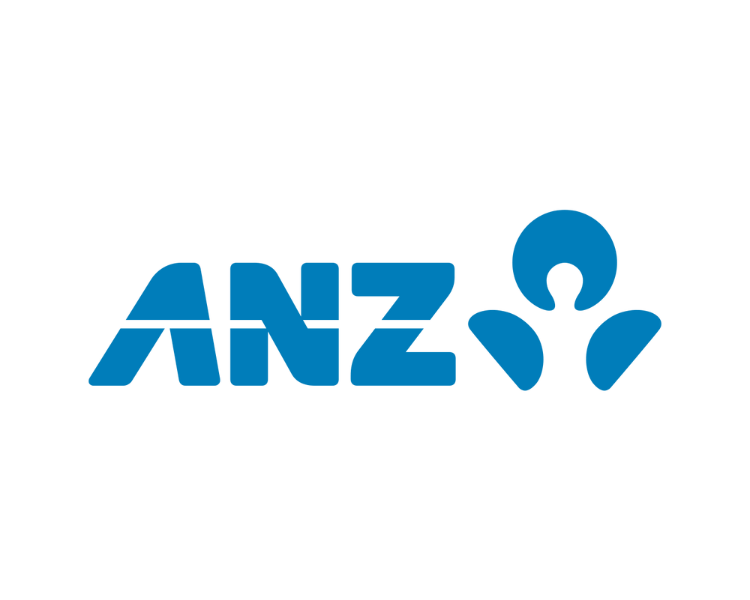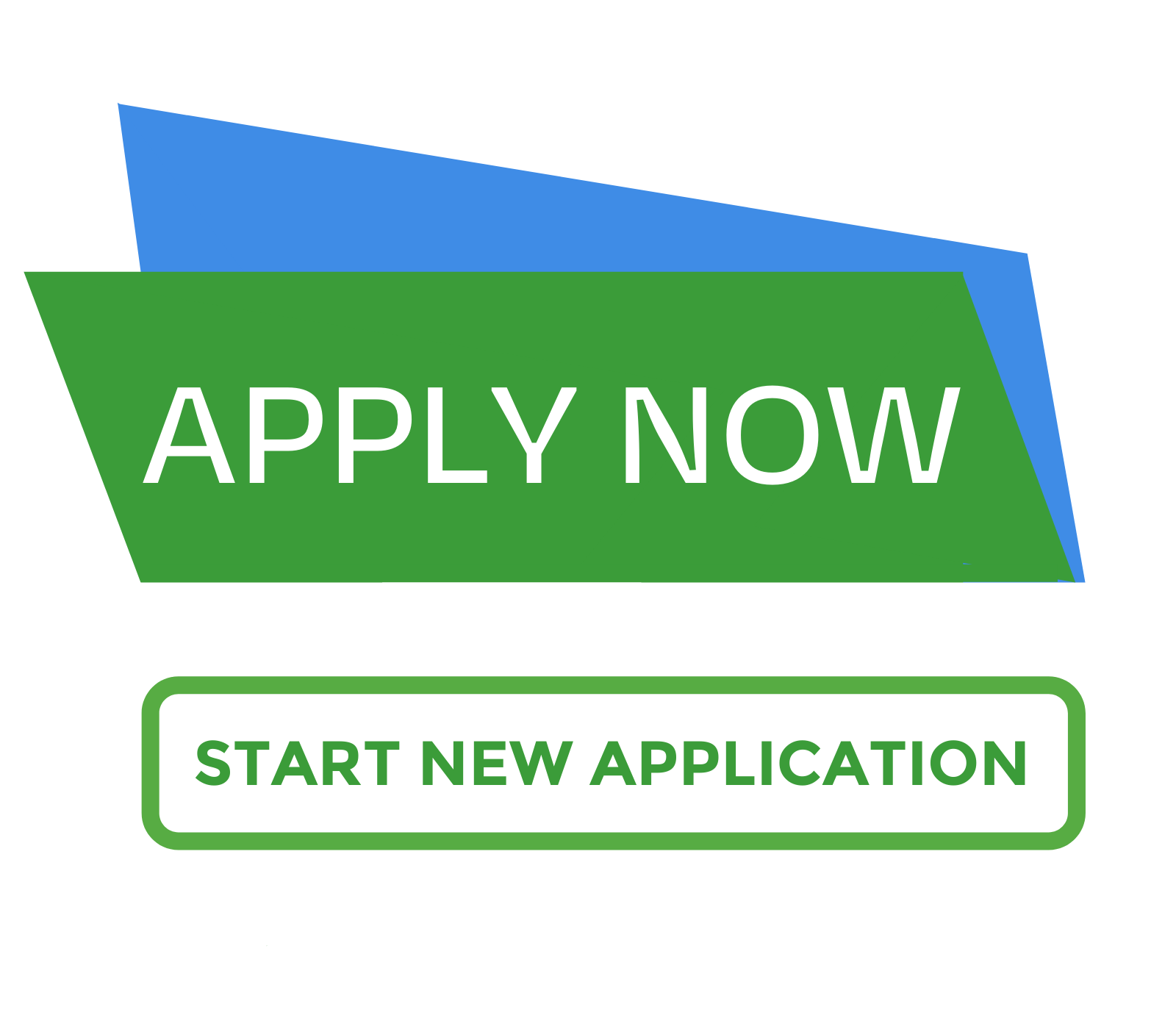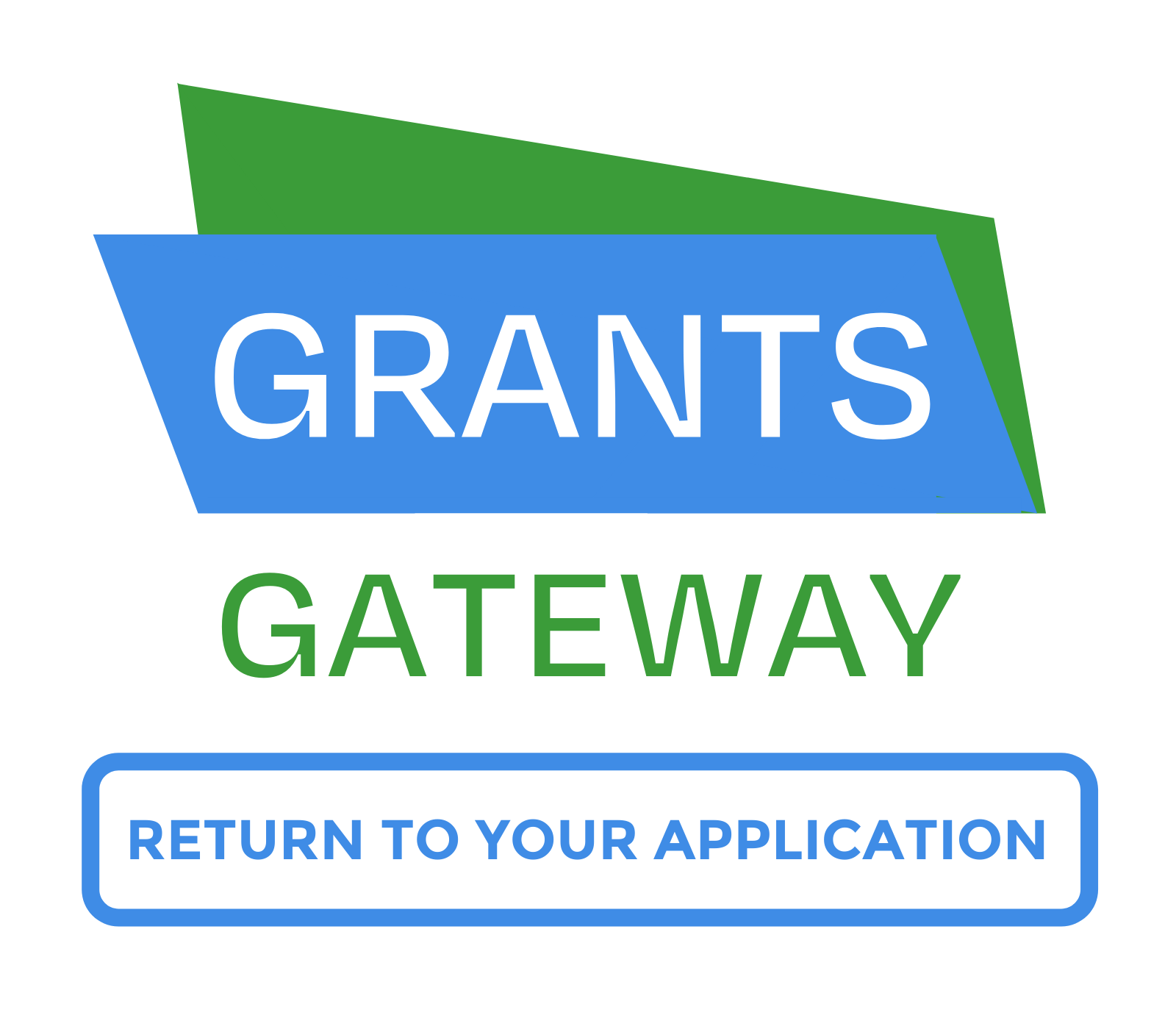ANZ Seeds of Renewal
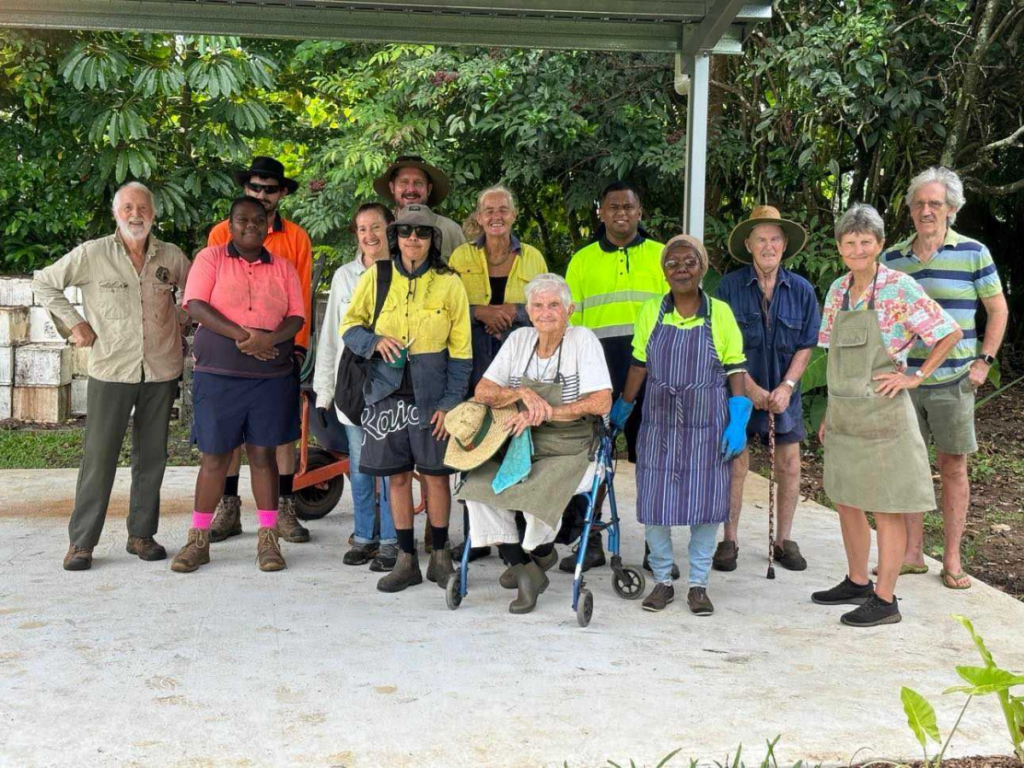
ANZ Seeds of Renewal is a small grants program designed to help build vibrant and sustainable rural communities, to ensure the ongoing prosperity of regional Australia.
The program demonstrates ANZ’s ongoing commitment to shape a world where people and communities thrive. It is built on two key tenets:
- Vibrant communities are diverse and inclusive with strong social capital, where everyone can participate and build a better life; and
- Sustainable communities innovate, expand, and create opportunities that will deliver demonstrable medium to long-term economic benefit to the community, contributing to economic sustainability.
Proudly supported by

The 2024 program is now closed.
Funding announced by late November 2024
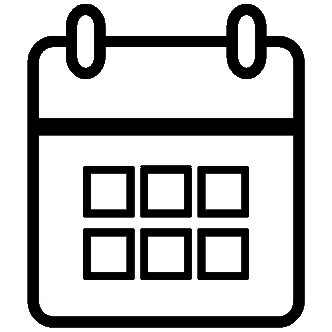
Recipient Announcements
How to apply
Please read the information on each of the three tabs below to make sure this is the right grant for your project.
If you want to explore other grant options, please go to Find Funding Now.
I have a question, who can I talk to?
Jane Crane
info@frrr.org.au
1800 170 020
Confirm you are eligible to apply for this grant
To make sure this is the right grant for your community, please read the grant information detailed in the Program Guidelines below carefully. Click on each headline to reveal the detail.
What are the program objectives?
The ANZ Seeds of Renewal program focuses specifically on helping to build vibrant and sustainable rural communities and ensure the ongoing prosperity of regional Australia. It is built on two key tenets:
- Vibrant communities are diverse and inclusive with strong social capital, where everyone can participate and build a better life.
- Sustainable communities innovate, expand and create opportunities that will deliver demonstrable medium to long-term economic benefit to the community, contributing to economic sustainability.
The ANZ Seeds of Renewal program is focused upon supporting projects that align to one of ANZ’s four focus areas:
1. Improving environmental sustainability
Supporting local causes to improve environmental sustainability practices, including initiatives that restore and conserve the natural environment or which contribute to lower carbon emissions, water stewardship and waste minimisation.
Examples may include:
- Educate local communities about the importance of environmental sustainability;
- Improve environmental standards within communities;
- Support or accelerate the adoption of better environmental practices;
- Encourage community participation at events or activities to improve environmental sustainability.
Examples of past projects:
- Condamine Headquarters Landcare Group – ‘Seeding’ a Community Landcare Nursery – Condamine, QLD: Boost environmental sustainability by developing environmental standards to develop a native plant nursery for the region.
- Cocos (Keeling) Islands Shire Council – 58 Plants – Cocos Keeling Islands, WA: Improve the natural environment and amenity of the Cocos Islands through a replanting and educational program of activities involving the local community.
2. Improving financial wellbeing within the community
Supporting local programs and initiatives that improve financial wellbeing, particularly for under-represented and disadvantaged people in our community, including initiatives that improve economic participation, for example through building financial literacy and vocational skills and providing access to meaningful work.
Examples may include programs that:
- Build financial knowledge;
- Support job-readiness;
- Promote better financial behaviours and decision-making;
- Build financial confidence and wellbeing;
- Assist with financial goal-setting;
- Improve money management skills.
Examples of past projects:
- Realising Every Dream (RED) Inc – Money Mates – Lismore, NSW: Boost job readiness of people living with a disability in the Lismore, Richmond Valley and Kyogle regions by providing professional upskilling and mentoring programs over a 12 month period.
- The Shift Project Byron Incorporated – The Linen Shift – Byron Bay, NSW: Improve health and financial well-being of women, whilst providing employment opportunities, through the purchase of equipment to establish a new social enterprise.
3. Improving access to housing
Initiatives and programs that support those experiencing or at risk of homelessness (including at-risk youth, older people or those escaping domestic violence) or programs that provide housing support and services for people living with disability.
Examples may include:
- Improving disability access to community facilities;
- Programs and initiatives for those experiencing, or at risk of, homelessness;
- Improving accommodation facilities for people living with disability;
- Encouraging community participation in initiatives to support those experiencing, or at risk of, homelessness.
Examples of past projects:
- Youth Involvement Council Inc – Housing for Life – Port and South Hedland, WA: Support positive outcomes for young people at risk of homelessness in the Port Hedland region of WA through purchase of household items for a youth crisis accommodation facility.
- Murray Human Services Inc – Design for Access and Mobility – Echuca, VIC: improve availability of accessible housing in Echuca through the upgrade of an access ramp at a local residential care facility.
4. Other community projects that assist local communities to thrive
Projects seeking to deliver outcomes that align to either of the key program tenants of:
Enabling vibrant communities that are diverse and inclusive with strong social capital, where everyone can participate and build a better life; and/or
Creating sustainable communities which innovate, expand and create opportunities that will deliver demonstrable medium to long-term economic benefit to the community, contributing to economic sustainability.
Example of past project:
- Rex Theatre Museum Limited – Cascade of Culture: A Roadmap for Rural Creative Diversity – Charlton, VIC: Build a vision for community vibrancy and sustainability by developing a 10 year roadmap for community activity at the Charlton Rex Theatre.
Is this grant available in my area?
Grants are awarded across remote, rural and regional Australia.
How much funding is available? Are there priority areas?
Through the Seeds of Renewal program, ANZ commits $250,000 which is distributed through grants of up to $15,000 to community organisations for projects that will help their community thrive.
All requests will be considered with a focus on the priority areas listed below:
- Projects that will deliver demonstrable medium to long-term benefit to a regional Australian community;
- Projects that benefit a large number of people from a diverse range of social groups;
- Projects that encourage inclusion and participation of under-represented or marginalised groups;
- Projects that demonstrate co-contributions (either in-kind or from other funding sources) and broad community support will be looked upon favourably – it is highly recommended that you include these within your application.
Note: Where structured volunteering by ANZ staff would add value to the project, ANZ is keen to facilitate this in-kind support but it is not a requirement.
What can be funded?
A broad range of charitable projects aligned to the program themes are considered under this program including:
- Delivering, or providing activities, events, programs and services;
- Purchasing or hiring equipment and materials;
- Community infrastructure projects;
- Developing the resources of the community including volunteers and items that will enable participation in projects.
What can’t be funded?
There are several areas that we can’t fund through this program. If in doubt, please contact us.
- Federal, State and Local Government organisations and their projects;
- Political organisations;
- Religious or sectarian organisations involved in purely religious / sectarian activities;
- Primary and Secondary Schools;
- Ongoing core organisational operational costs (e.g. rent, utilities, regular wages, loan repayments);
- The encouragement or advancement of sport, recreation and social activities are not considered charitable activities under Australian law.
Applications from sporting organisations need to clearly demonstrate charitable outcomes and benefit to the wider community that are beyond the sporting activities of the club; - Overseas travel and overseas projects;
- Prizes, gifts, trophies or awards;
- Projects that primarily benefit private business, a sole trader, or private interests;
- Projects solely focused on animal welfare.
Is my organisation eligible?
To apply, you must meet the following criteria:
- Not-for-profit organisations with or without DGR-1 endorsement are eligible;
- Applicant organisations must be a not-for-profit organisation with either an Incorporation Certificate and/or an ABN. If you are unsure if your organisation is a registered not-for-profit (for example, if you are a Co-operative, Other Unincorporated Entity, Public Company or Trust), please contact FRRR;
- Project must be for charitable purposes and offer clear public benefit;
- Organisations can submit one application per grant round; and
- Projects must benefit communities in remote, rural or regional Australia.
Please note, you will be considered ineligible if the:
- Application is submitted by individuals, sole traders, private or commercial businesses (as per the submitted ABN);
- Application is submitted by an organisation that is a non-legal entity and the nominated legal governing / partnering organisation has not provided written confirmation of their willingness to assume responsibility for management of the funds and acquittal of the project;
- Application is submitted without required financial documentation and quotes or rationale for budget items over $1,000 (see additional information on the second tab);
- Overdue final report/s from any FRRR grants awarded in the previous seven years have not been acquitted (delivery organisations should check with legal organisation to see if there are any outstanding final reports);
- Application is for a project or activity that has already occurred / is occurring prior to the announcement of funding;
- Application is incomplete. NOTE: Due to the volume of applications received, applications are assessed based on the documentation received at the time of application. FRRR is unlikely to follow up missing documentation after applications have been submitted.
Volunteering opportunities
Opportunities may also be made available for ANZ staff to provide further in-kind support by volunteering their time to assist successful organisations.
Note that this is not part of the grant process and answering ‘no’ will not negatively influence the assessment of applications.
Gather information to support your grant application
Please read the information below to support the planning and preparation of your project. It also sets out what you MUST include for your project to be considered. There are plenty of helpful resources to support you along the way.
Please contact FRRR if you have any questions about the following information.
Your grant application MUST include:
Eligible legal entities
Every application needs to include an organisation that holds either an ABN or Incorporation Certificate. If your organisation doesn’t have that, FRRR may still fund the project but you need another organisation’s support, which we refer to as the ‘legal organisation’ (with your organisation being the delivery organisation). This situation often occurs when the organisation delivering the activity or project is a branch of an overarching organisation – such as a local CWA or YMCA branch. In this case, the CWA or YMCA would be the legal organisation.
Even though your organisation may complete the application (and will be doing the work), it’s the ‘legal organisation’s’ legal and financial information that needs to be provided. They also need to provide a letter of support, confirming they are willing to play this role, with a template available here for your convenience.
FRRR conducts a broad range of due diligence queries when reviewing applications, such as: reviewing current and past incorporation, DGR and ACNC status. If your organisation has happened to have their incorporation status, DGR status or ACNC status changed or ACNC registration revoked or voluntarily withdrawn, please let us know the reasons for this.
Applications from ACNC and/or unincorporated associations are required to submit their organisation’s Constitution.
Why is this important?
This program is only able to distribute funds to not-for-profit organisations with an ABN or Incorporation Certificate, and FRRR needs to know that the organisation with that ABN / Incorporation number understands and agrees to carry out their responsibilities in relation to your project, if successful.
Financial information
Applications received without the requested financial information are ineligible. Providing incorrect financial information is currently the most common reason why applications are not able to be considered. You must include the organisation’s:
- Annual income (total income in your financial year);
- Annual expenditure (total expenses in your financial year);
- Current assets (from your audited financials, or bank balance minus any debts).
Please note:
- Provide a brief explanation of any large financial surplus or current assets and reasons why FRRR funds are still required;
- If financial information is more than 18 months old, please provide an explanation as to why the organisation does not have more recent documents;
- Please explain any deficits and steps to sustain the organisation financially.
Please contact us if you cannot provide required financials or you are unsure about what to provide.
Why is this important?
FRRR uses this information to understand your organisation’s financial viability and ability to manage grant funds.
Project budget
You must include a project budget that clearly shows the items that FRRR grant funds would be used for and that also shows all income and expenses related to your project.
Budgets should be realistic and must add up – i.e. total expenditure must match total income.
Applicant contributions in cash or in-kind are highly regarded. Quotes or detailed rationale for items over $1,000 are required, where possible. Note: FRRR suggests costing unskilled volunteer labour at $45 per hour.
For more info on costing volunteer labour, visit: https://explore.fundingcentre.com.au/help-sheets/valuing-volunteer-labour.
Why is this important?
A clear budget helps FRRR to understand the size of your project, exactly how FRRR funds will be spent and helps demonstrate community support for your project through in-kind contributions either from your organisation or partners / community members.
Helpful resources:
Supporting materials
FRRR strongly recommends that you provide supporting materials such as letters of support,evidence of permission from the property owner, community plans, survey results, photographs, media clips and research reports that can show broad community support and partnerships involved in the project. For more information on supporting documentation, watch this recording.
Large documents should be referenced and explained in the application.
Why is this important?
FRRR seeks to fund projects that are well-supported by the broader local community, are locally-led and delivered, show good partnerships and benefit multiple parts of the community. As FRRR is not always familiar with your community, our staff consider support material as evidence toward understanding the level of community need, benefit and support.
Helpful resources:
Clear project information
A clear description of exactly what the grant funds will be used for, when and where the project will happen, who will benefit and who will be involved in delivering the project, why the project and grant funds are needed, how funds will be spent and how the activities and success of the project will be recorded, evaluated and shared.
Where possible, we encourage you to make it really clear that your organisation is ready and able to deliver the project and, if required, provide ongoing support for the initiative.
Why is this important?
FRRR needs to clearly understand your project to assess its merits. Applicants should focus on addressing the what, when, where, who, why and how of the project, as this is the best way to clearly communicate the details of the project.
A ready community is best placed to achieve the aims of your project, so during assessment, our staff look for information that tells us that good leadership, skills and awareness exist in your community to support the project now and in the future.
Helpful resources:
Focus area
We have grouped the kinds of projects communities commonly ask us to help fund into seven areas, which we call the Activity Tree:
1. Building community resilience
2. Developing organisational resilience and capacity
3. Enhancing environmental sustainability
4. Fostering cultural vibrancy
5. Lifelong learning and education
6. Economic strength
7. Improving community health and social wellbeing
We ask you to nominate one of those seven areas when you apply. So, before you lodge your application, download the Activity Tree to help you identify your focus area.
Why is this important?
FRRR makes grants to communities, but we also need to be able to demonstrate to our funding partners where communities need support.
Need some more help?
We have a large selection of resources on our Grant Seeker Resources Page to help you along the way.
Submit your grant application via the Grants Gateway
The ANZ Seeds of Renewal program is now closed.
Please contact FRRR if you have questions about any aspect of the Grants Gateway online application form.
Helpful resources:
Please read the instructions on how to use the Grants Gateway How-to Guide and have your questions answered with our Grants Gateway FAQs.
It is time to submit your application. If it is helpful, you can download a sample copy of the application form.
Before you submit your application via the online Grants Gateway, please ensure you have:
If you have significant issues accessing a stable internet connection, please contact our team to discuss an alternative way of applying:
Ph: 1800 170 020 or Email: info@frrr.org.au
Inspiration
Read more about the impact that these grants have had.
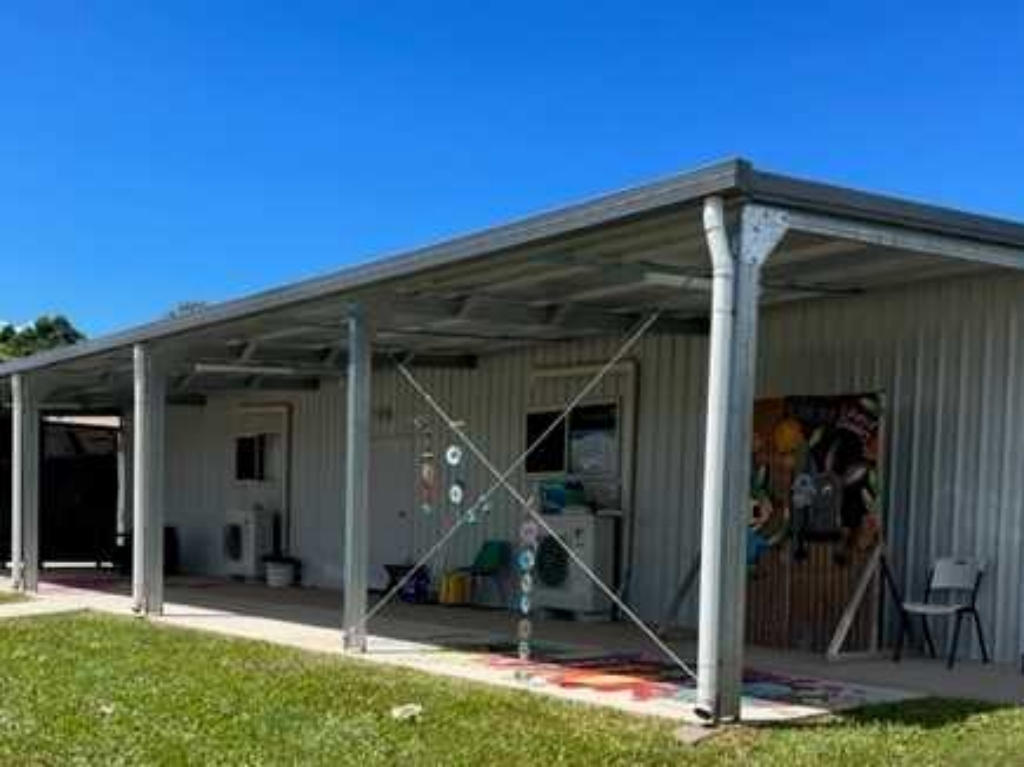
Extending ‘The Grove’ in Atherton
Tableland Community Link Association Inc used a $15,000 ANZ Seeds of Renewal grant to build an enclosed verandah extension at ‘The Grove’ activities centre, which is used on a daily basis by their clients. The extension has added extra cooling, further weather protection and increased the capacity of the centre, which has allowed TCL to increase the number of participants in the activities they hold for clients each weekday.
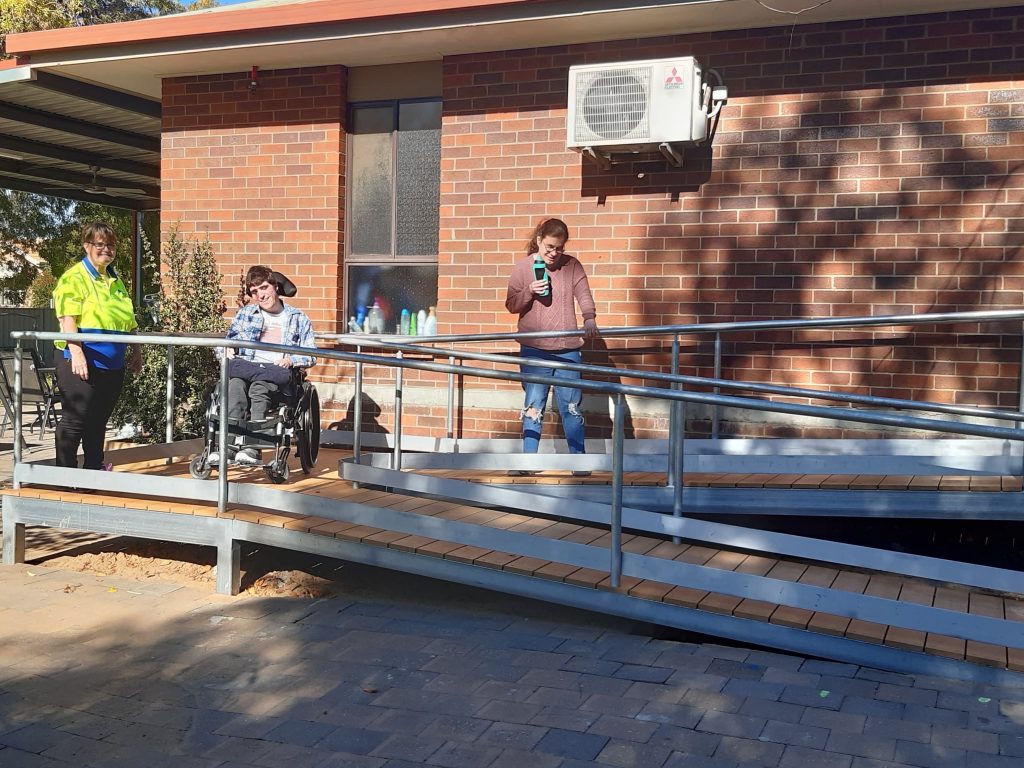
Enhancing quality of life & access
Murray Human Services received an ANZ Seeds of Renewal grant to improve accessibility for residents living with disabilities. The new ramp includes handrails, a less steep incline, a wider area to manoeuvre wheelchairs, and provides safer access for residents, as well an enhanced quality of life.
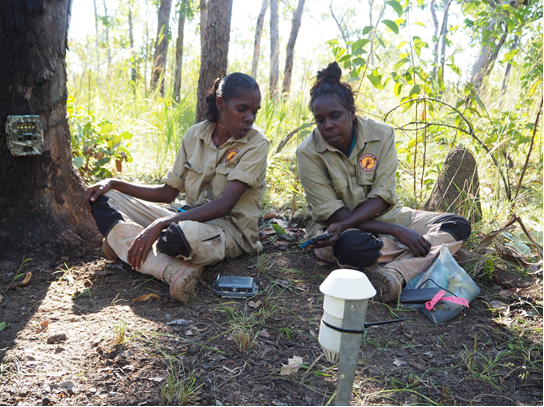
Protecting the Stone Country
Warddeken combines traditional ecological knowledge with Western science to manage and protect one of Australia’s most unique environments. They used a grant to help fund a network of cameras to understand the impact of its own land management practices and programs on the northern quoll.

